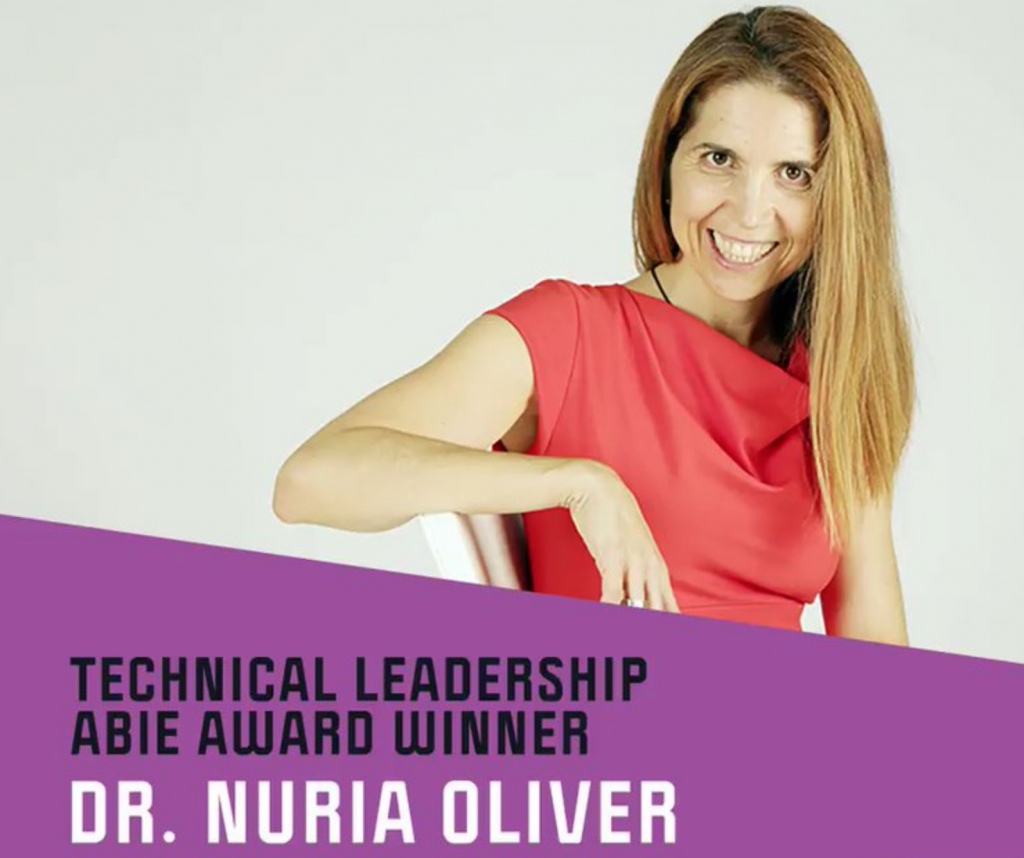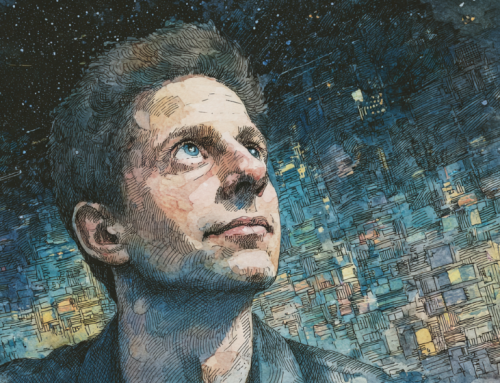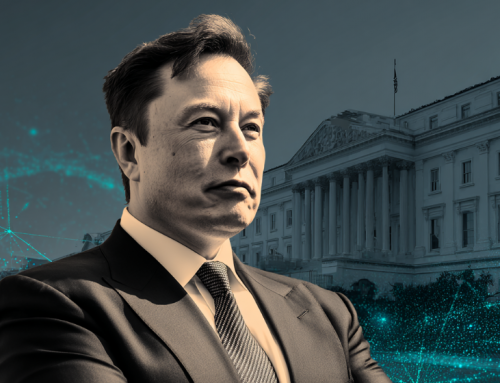
Dr. Nuria Oliver was one of the pioneers in facial recognition and has influenced the involvement of women in AI.
AI Pioneer Seeks to Has Led the March of AI and Machine Learning
Whether you are talking about AI or machine learning, few people are as versed in how they work as Dr. Nuria Oliver. Her research and inventions have ignited advancements across the industry and now influence many of the products and services we use every day, via the publication of 150 papers and 41 patents.
A full-length interview of Dr. Oliver is featured in a venturebeat.com story written by Sage Lazzaro that focuses on how she is advocating AI that has the best interests of humanity programmed in. She founded the Institute for Humanity Centric AI to ensure that AI doesn’t evolve to negatively impact people. She told venturebeat.com:
“To me, progress is an improvement to the quality of life for all people, all the beings on the planet, and the planet itself — not just some people,” she told VentureBeat. “So I think it’s very important before we invest in any technology, to think whether that development is continuing progress. Or if it’s not, maybe we shouldn’t do it.”
Her background, drawn from Wikipedia, shows she’s had an influence in Spain since she graduated with a degree in Telecommunications Engineering from the Universidad Politecnica de Madrid in 1994. She was awarded the Spanish First National Prize for Telecommunication Engineers in 1994. In 1995 she received a La Caixa fellowship to study at MIT, where she received her doctorate at the Media Lab in the area of perceptual intelligence. In 2000, she joined as a Research in the area of human-computer interfaces for Microsoft Research in Redmond, WA, and worked there until 2007.
In 2007 she moved to Spain to work at Telefónica R&D in Barcelona as Director of Multimedia Research, the only female director hired at Telefónica R&D at the time. Her work focused on the use of the mobile phone as a sensor of human activity. She worked there until 2016.
In 2017 she joined Vodafone as Director of Data Science Research, and also was named the first Chief Data Scientist at DataPop Alliance, an international non-profit organization created by the Harvard Humanitarian Initiative, MIT Media Lab, and Overseas Development Institute devoted to leveraging Big Data to improve the world.
In 2018 she was elected a permanent member of the Spanish Royal Academy of Engineering. She is a spokeswoman and counselor to the highest levels of the Spanish government’s AI programs and committees.
In 2020 during the COVID-19 pandemic, she was named Commissioner of the Presidency of Valencia for AI and COVID-19, and led the data-science team for the Valencian Government during the crisis. She was responsible for designing and launching covid19impactsurvey, one of the largest citizen-science surveys in Spain, with over 500,000 participants.
The Interview
What stood out in this venturebeat.com interview was the separation she places between progress and advancements. She points out that advancements should affect all of us, not just a privileged few.
“To me, progress is an improvement to the quality of life for all people, all the beings on the planet, and the planet itself — not just some people,” Oliver told VentureBeat. “So I think it’s very important before we invest in any technology, to think whether that development is continuing progress. Or if it’s not, maybe we shouldn’t do it.”
The interview is published in tandem with her recent award from Venturebeat in a series called Transform 2021. Oliver was highlighted for not only leading in the field of AI, but of leading women into the field of AI and machine learning.
When asked what part of her expansive career she looks back on as being a special accomplishment she said:
“That’s like asking someone if they have a preferred child. But I guess my main area of expertise is building computational models of human behavior and building intelligent interactive systems that understand humans. And in terms of a landmark project, I would say the work I did on modeling human interactions using machine learning techniques because that was one of the early works on detecting and modeling human interactions. I also did a system that was able to predict the most likely maneuver in a car before anyone was talking about autonomous driving — like back in 1999. So that was also a really complex but very exciting project.”
She said she was proud of her first MIT project, a real-time facial expression recognition system in 1995, as well as work she’s done on the intersection between mobile phones, health, and wellness.
“…it was sort of trying to really change the way we perceived phones. A lot of that work has also become mainstream today with wearables. And then finally, I would say all the work I’ve done on using data and AI for social good. That’s an area that I’m very passionate about, and I feel it’s had a lot of impact. I created the area for using data and AI for social good at Telefonica, and I created the area at Vodafone.”
The interview shows why she’s one of the leaders in this ever-evolving technology.
read more at venturebeat.com







Leave A Comment